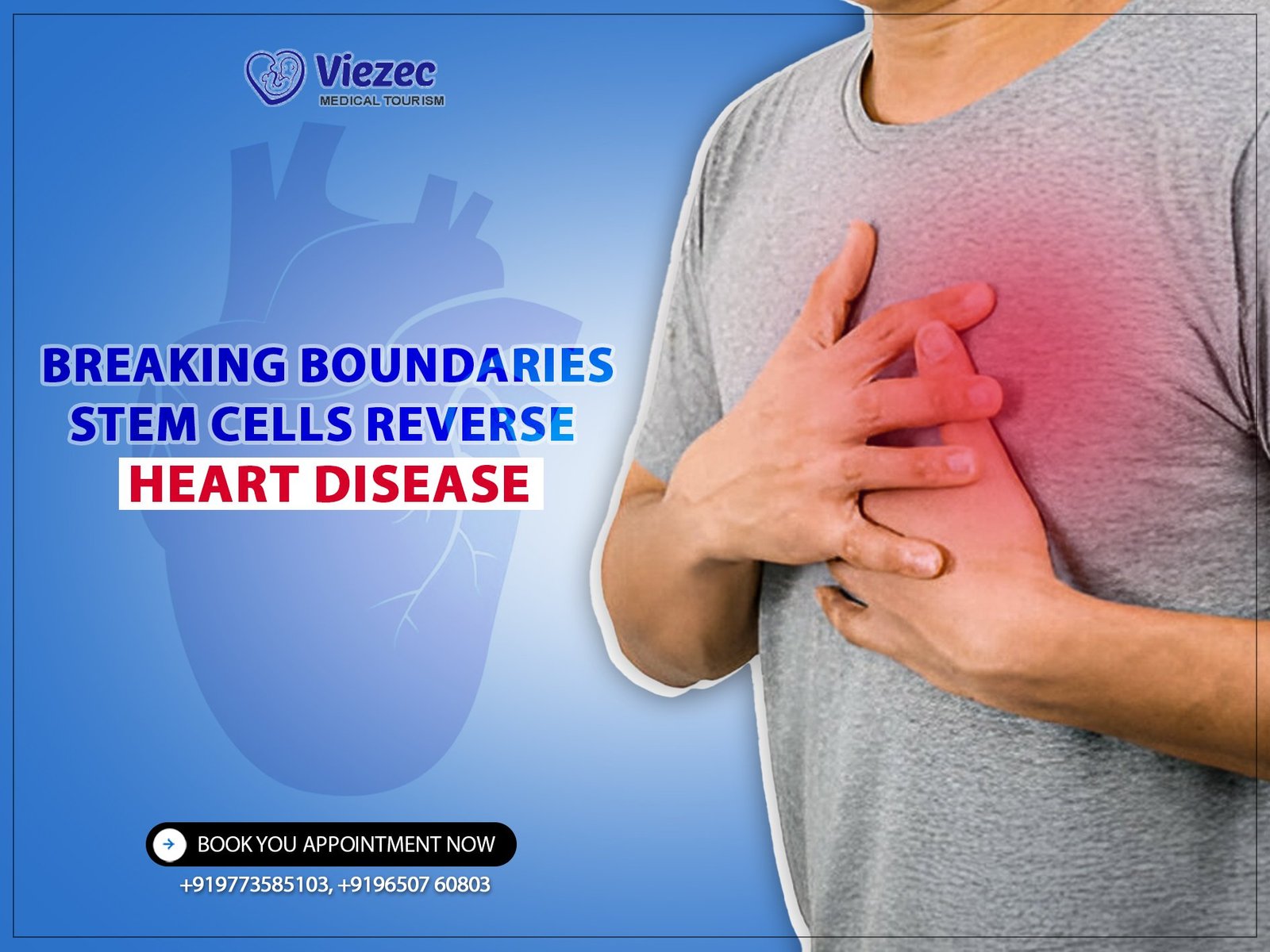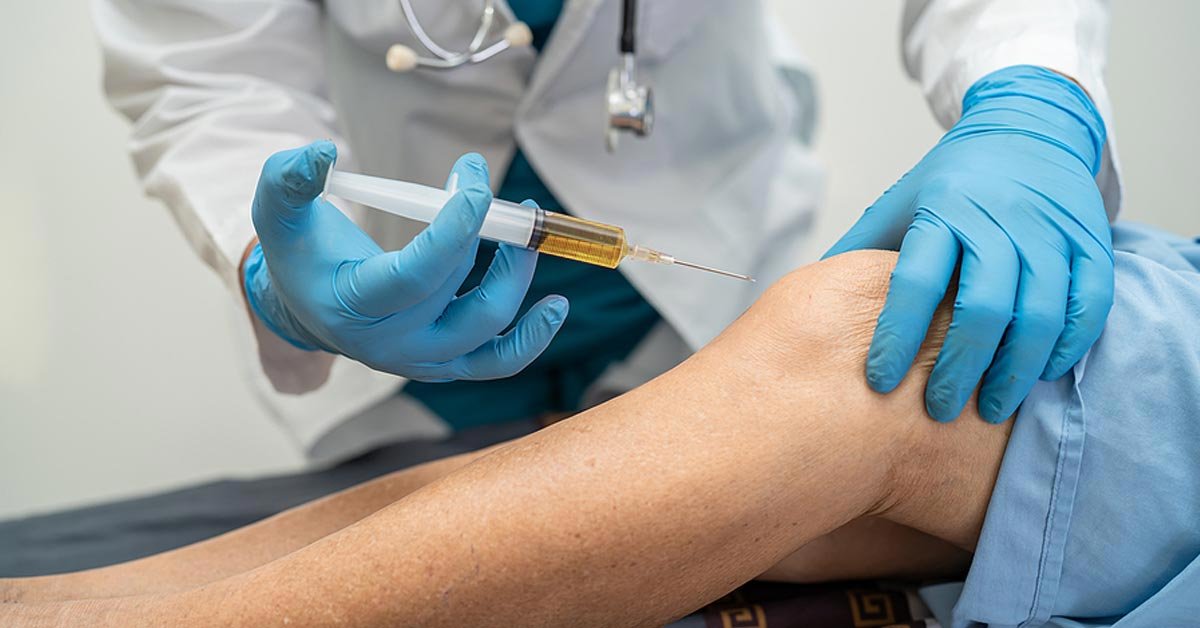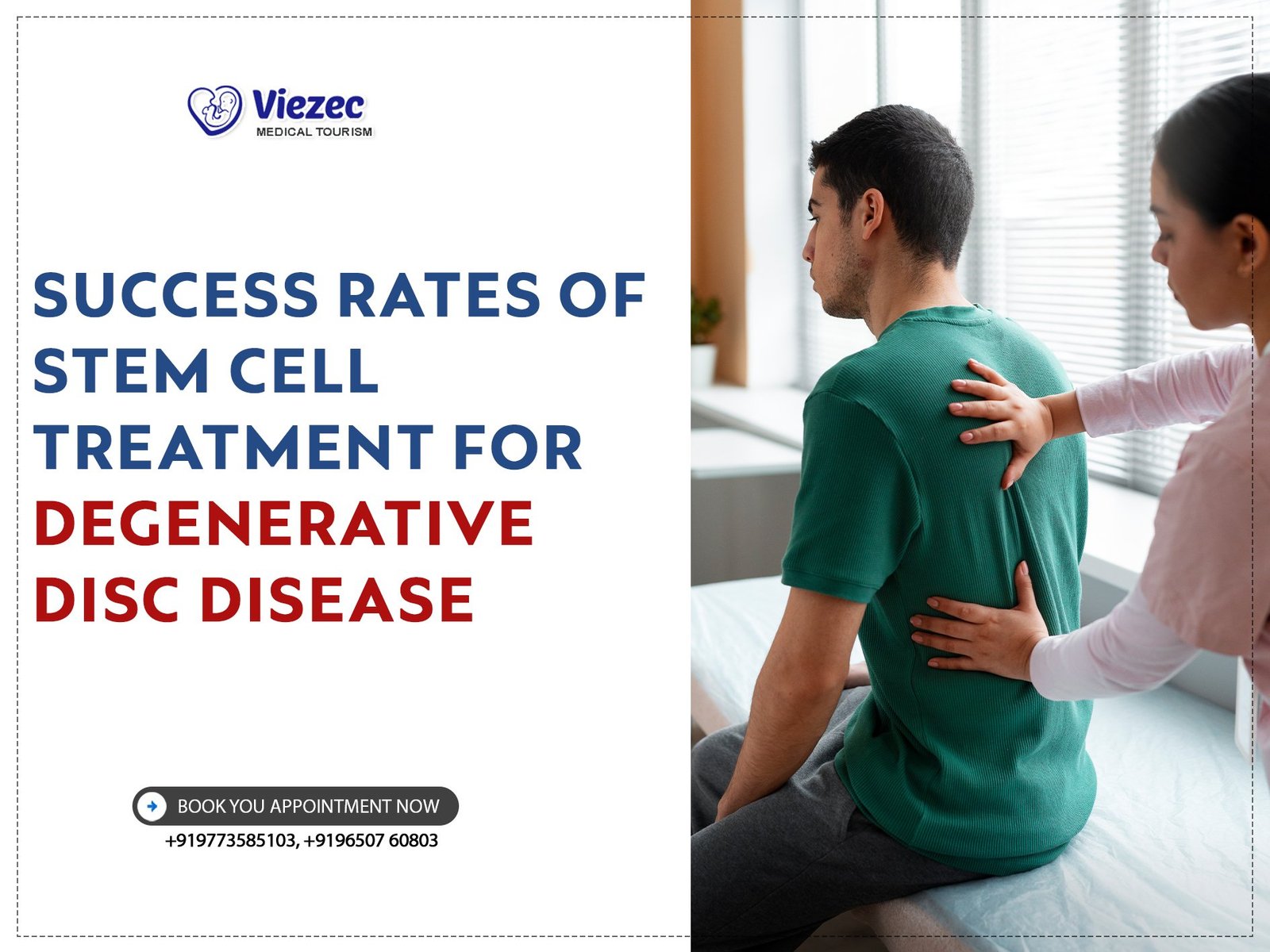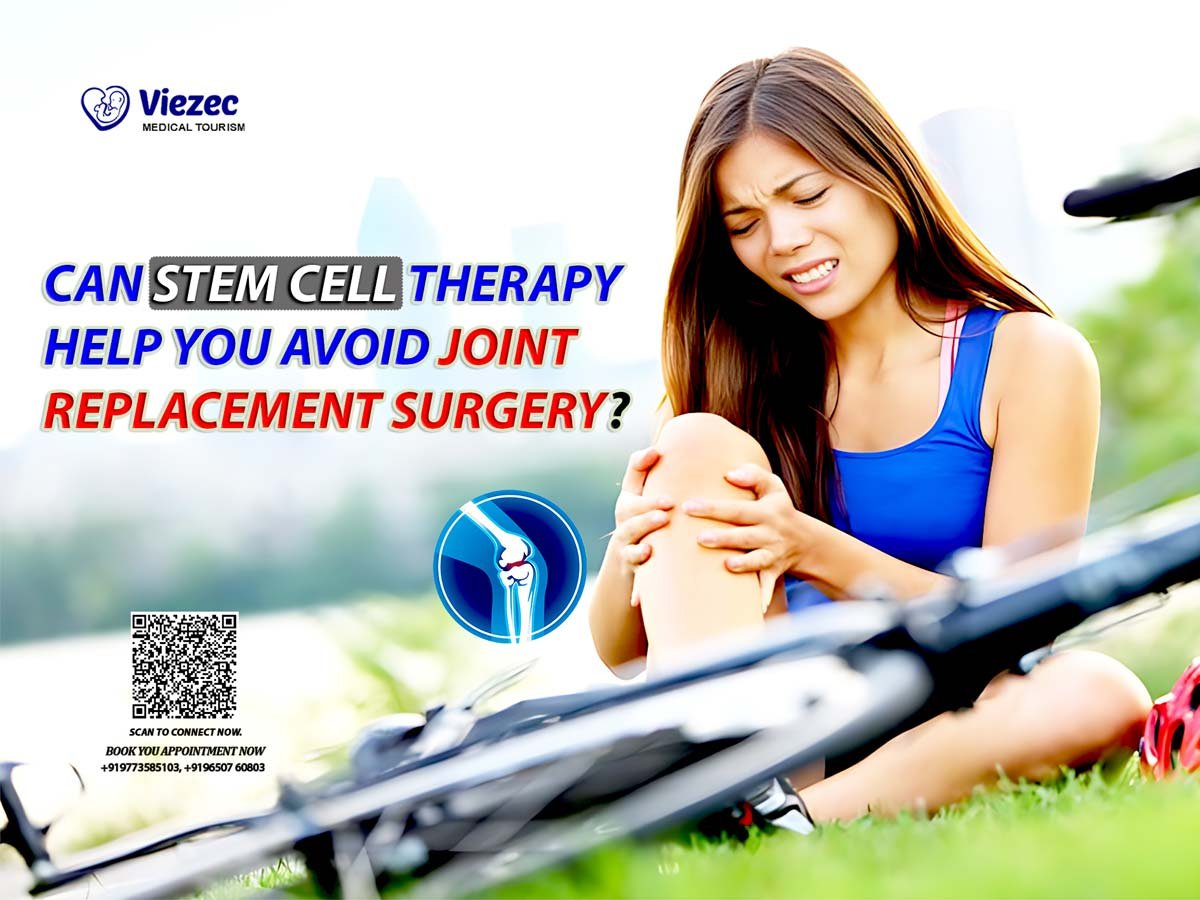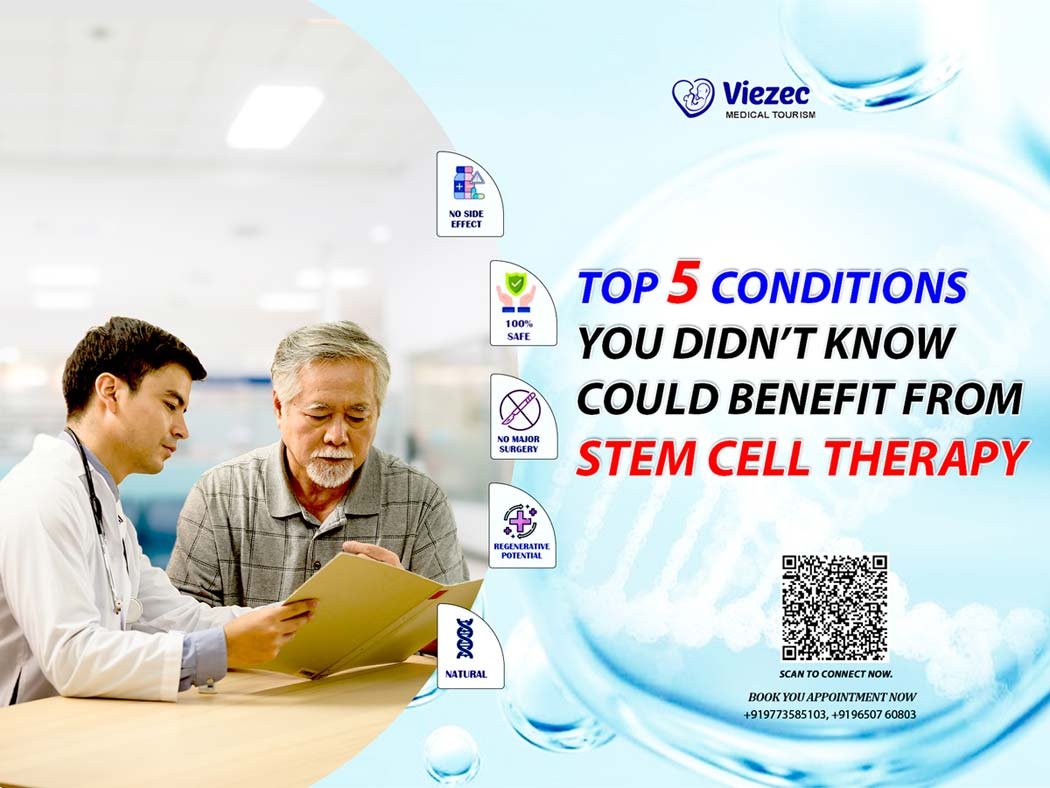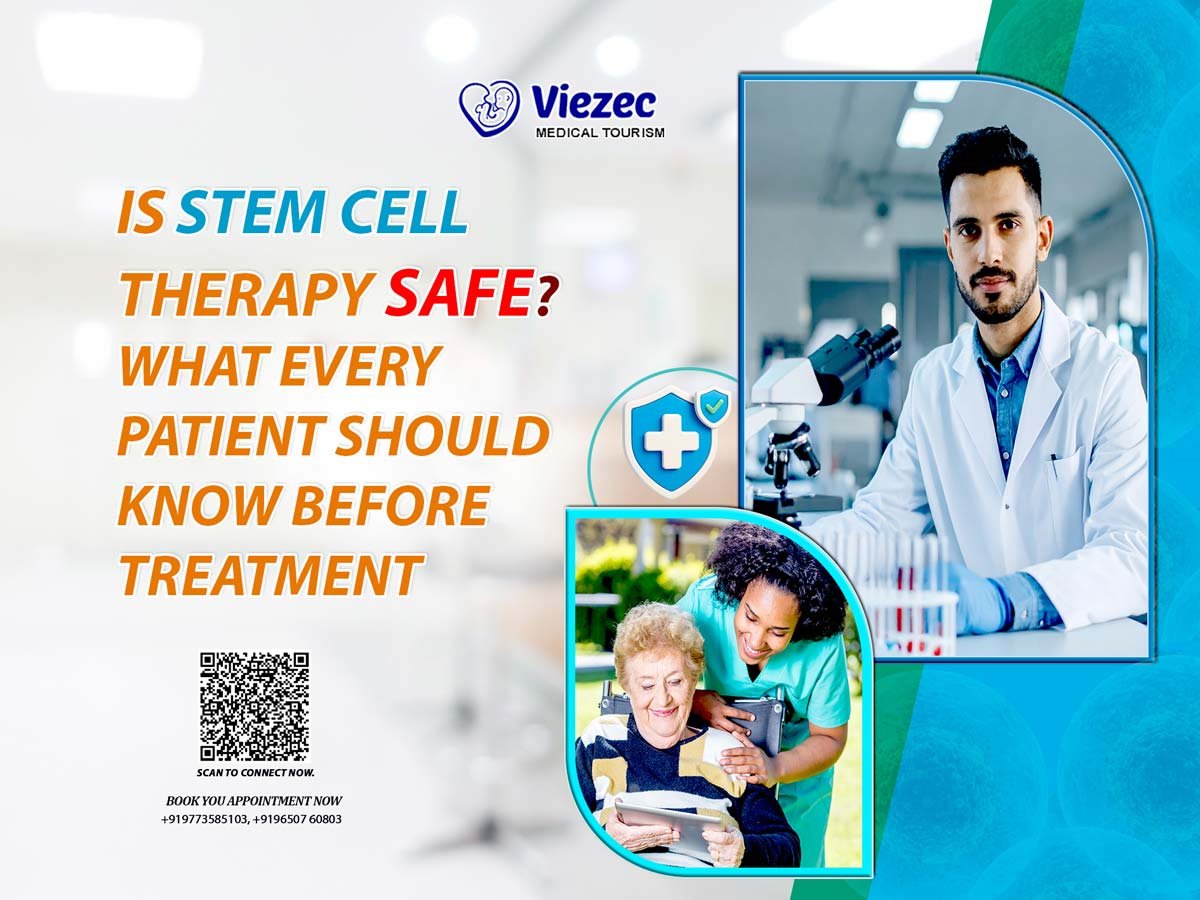Stem cells, with their remarkable ability to differentiate into various cell types, have emerged as a beacon of hope in the realm of regenerative medicine, particularly in combating heart disease. Stem cells hold the promise of not just alleviating symptoms but also reversing the damage caused by heart ailments. Before delving into their therapeutic potential, let’s understand the fundamental concepts of stem cells and the complexities of heart disease.
Definition and Types of Stem Cells
Stem cells are undifferentiated cells capable of self-renewal and differentiation into specialized cell types. They exist in various forms, each with its unique characteristics and potential applications.
Embryonic Stem Cells: Derived from embryos, these pluripotent cells have the capacity to develop into any cell type in the body, making them a valuable resource for regenerative medicine research.
Adult Stem Cells: Found in adult tissues, these multipotent cells contribute to tissue repair and regeneration, albeit with limited differentiation capabilities compared to embryonic stem cells.
Induced Pluripotent Stem Cells: Reprogrammed from adult cells, induced pluripotent stem cells possess similar properties to embryonic stem cells, offering a potential alternative without ethical concerns.
Overview of Heart Disease
Heart disease encompasses a range of conditions affecting the heart’s structure and function, including coronary artery disease, myocardial infarction, and heart failure. It remains a leading cause of morbidity and mortality worldwide, posing significant challenges to healthcare systems.
Types of Heart Disease: From ischemic heart disease to arrhythmias, heart diseases manifest in diverse forms, each presenting distinct clinical manifestations and treatment approaches.
Causes and Risk Factors: Factors such as hypertension, diabetes, and lifestyle choices contribute to the development of heart disease, highlighting the multifactorial nature of its etiology.
The Intersection of Stem Cells and Heart Disease
The convergence of stem cell research and heart disease therapeutics offers new avenues for treatment and recovery, revolutionizing traditional approaches to cardiovascular care.
The Promise of Regenerative Medicine
Regenerative medicine aims to harness the innate regenerative capacity of stem cells to repair damaged tissues and organs, providing novel solutions for heart disease management.
Key Research Milestones
Over the years, significant advancements in stem cell research have propelled the field forward, from elucidating cellular mechanisms to translating findings into clinical applications, marking pivotal milestones in the quest to reverse heart disease.
Mechanisms of Stem Cells in Heart Disease Reversal
Understanding how stem cells exert their therapeutic effects in the context of heart disease is crucial for optimizing treatment strategies and improving patient outcomes.
Cellular Repair and Regeneration
Stem cells promote tissue repair and regeneration through mechanisms such as myocardial infarction recovery and angiogenesis, fostering the restoration of cardiac function post-injury.
Anti-inflammatory Effects
In addition to their regenerative properties, stem cells exert anti-inflammatory effects, attenuating the inflammatory response associated with heart disease and mitigating tissue damage.
Cellular Differentiation
The ability of stem cells to differentiate into cardiomyocytes and integrate into cardiac tissue holds immense potential for replenishing lost or damaged cells, enhancing cardiac function and structural integrity.
Types of Stem Cells Used in Heart Disease Treatment
Various types of stem cells have been explored for their therapeutic potential in treating heart disease, each offering distinct advantages and posing unique challenges.
Embryonic Stem Cells (ESCs)
Despite their remarkable differentiation capabilities, the use of embryonic stem cells raises ethical concerns and practical challenges, necessitating careful consideration in clinical applications.
Adult Stem Cells (ASCs)
Adult stem cells, including bone marrow-derived and cardiac stem cells, offer a more ethically acceptable alternative with proven efficacy in preclinical and clinical studies, albeit with limitations.
Induced Pluripotent Stem Cells (iPSCs)
The generation of patient-specific induced pluripotent stem cells presents exciting possibilities for personalized medicine, overcoming immune rejection and ethical dilemmas associated with other stem cell sources.
Clinical Applications and Case Studies
The translation of stem cell research into clinical practice has yielded promising results, with numerous successful case studies and ongoing clinical trials shaping the landscape of heart disease treatment.
Successful Case Studies
Landmark trials and longitudinal studies have demonstrated the safety and efficacy of stem cell therapy in improving cardiac function and quality of life for patients with various forms of heart disease.
Current Clinical Trials
From early-phase exploratory trials to large-scale Phase III studies, ongoing clinical trials continue to assess the safety, efficacy, and long-term outcomes of stem cell-based interventions across diverse patient populations.
Personalized Stem Cell Therapy
Advances in stem cell technology and predictive analytics pave the way for personalized treatment strategies tailored to individual patient profiles, optimizing therapeutic outcomes and minimizing risks.
Advances in Stem Cell Delivery Methods
Optimal delivery of stem cells to the heart is essential for maximizing their therapeutic potential and ensuring targeted tissue regeneration.
Direct Injection Techniques
Intramyocardial and intracoronary injection methods enable precise delivery of stem cells to the myocardium, facilitating localized repair and regeneration of damaged cardiac tissue.
Scaffold-based Delivery Systems
Biomaterial scaffolds and injectable hydrogels provide structural support and enhance cell retention and survival, offering innovative solutions for improving stem cell engraftment and therapeutic efficacy.
Extracellular Vesicles and Exosomes
Extracellular vesicles and exosomes secreted by stem cells serve as mediators of intercellular communication, exerting paracrine effects and modulating tissue repair processes, thus representing a promising avenue for non-cellular-based therapies.
Ethical and Regulatory Considerations
While stem cell therapy holds tremendous potential for treating heart disease, ethical and regulatory considerations must be carefully navigated to ensure responsible and equitable implementation.
Ethical Issues in Stem Cell Research
Debates surrounding the ethical use of embryonic stem cells and informed consent underscore the importance of ethical frameworks and oversight mechanisms in guiding stem cell research and clinical practice.
Regulatory Frameworks
Robust regulatory frameworks, including FDA regulations and international guidelines, play a crucial role in safeguarding patient safety, promoting transparency, and fostering innovation in stem cell-based therapies.
Future Directions in Policy
As the field of stem cell research continues to evolve, policymakers must adapt regulatory frameworks to accommodate emerging technologies and address evolving ethical concerns, striking a balance between innovation and safety.
Challenges and Limitations
Despite the remarkable progress in stem cell-based therapies for heart disease, several challenges and limitations must be addressed to realize their full potential in clinical practice.
Scientific and Technical Challenges
Enhancing cell survival and integration, minimizing the risk of tumorigenesis, and optimizing treatment protocols pose significant scientific and technical hurdles that require innovative solutions.
Clinical and Logistical Barriers
Cost constraints, accessibility issues, and the need for specialized expertise present practical challenges to widespread adoption of stem cell therapies, underscoring the importance of health system readiness and infrastructure development.
Long-term Efficacy and Monitoring
Sustaining functional improvements over the long term and implementing robust surveillance and reporting mechanisms are essential for assessing treatment efficacy, ensuring patient safety, and informing future research efforts.
Future Research Directions
Genetic Engineering and CRISPR
Advancements in genetic engineering, particularly CRISPR technology, hold promise for enhancing the potency of stem cells and reducing immune rejection. By precisely editing the genetic makeup of stem cells, researchers aim to create personalized therapies with improved therapeutic outcomes.
Biomarker Development
The identification of predictive biomarkers can facilitate patient selection, treatment monitoring, and outcome prediction in stem cell therapy. Ongoing research efforts are focused on discovering biomarkers associated with treatment success, disease progression, and patient response.
Artificial Intelligence in Stem Cell Research
Artificial intelligence (AI) is revolutionizing stem cell research by enabling data analysis, pattern recognition, and predictive modeling. AI algorithms can analyze vast amounts of data from clinical trials, genomic studies, and imaging modalities to uncover hidden patterns and optimize treatment strategies.
Comparative Studies and Meta-analyses
Comparing Stem Cell Types and Their Efficacy
Comparative studies have compared the efficacy of different stem cell types, including embryonic stem cells (ESCs), adult stem cells (ASCs), and induced pluripotent stem cells (iPSCs). Understanding the unique properties and limitations of each cell type is crucial for tailoring treatment approaches to individual patient needs.
Meta-analyses of Clinical Trial Data
Meta-analyses provide valuable insights into the overall efficacy, safety, and long-term outcomes of stem cell therapy across multiple clinical trials. By pooling data from diverse studies, researchers can assess treatment efficacy across different patient populations, identify trends, and evaluate factors influencing treatment success.
Cost-effectiveness Analysis
Evaluating the cost-effectiveness of stem cell therapy is essential for healthcare decision-making and resource allocation. Cost-effectiveness analyses consider the economic impact of stem cell interventions, including treatment costs, healthcare savings, and improvements in quality of life, to inform policy and reimbursement decisions.
Summary of Key Findings
Stem cell therapy holds immense promise for reversing heart disease and improving patient outcomes. Major advances have been made in understanding stem cell biology, overcoming technical challenges, and translating research findings into clinical practice.
Future of Stem Cells in Heart Disease Treatment
The future of stem cells in heart disease treatment is bright, with ongoing research focused on enhancing treatment efficacy, safety, and accessibility. Potential breakthroughs in genetic engineering, biomarker discovery, and AI-driven approaches offer exciting prospects for personalized and precision medicine.
Call to Action for Researchers and Clinicians
Collaborative efforts between researchers, clinicians, industry stakeholders, and regulatory agencies are essential for advancing stem cell therapy and realizing its full potential in treating heart disease. By working together, we can accelerate the pace of discovery, address persistent challenges, and improve patient outcomes.
Frequently Asked Questions
Are stem cell therapies safe for treating heart disease?
While stem cell therapies show promise in treating heart disease, safety concerns such as immune rejection and tumor formation remain. Rigorous clinical trials and regulatory oversight are essential to ensure the safety and efficacy of these treatments.
What are the potential risks and side effects of stem cell therapy?
Common risks and side effects of stem cell therapy may include infection, bleeding, inflammation at the injection site, and arrhythmias. Patients should undergo thorough evaluation and monitoring by healthcare professionals to minimize risks and maximize benefits.
How can I learn more about stem cell therapy for heart disease?
For more information on stem cell therapy for heart disease, including ongoing research, clinical trials, and treatment options, consult with your healthcare provider or visit reputable online resources such as academic journals, medical centers, and patient advocacy organizations.

